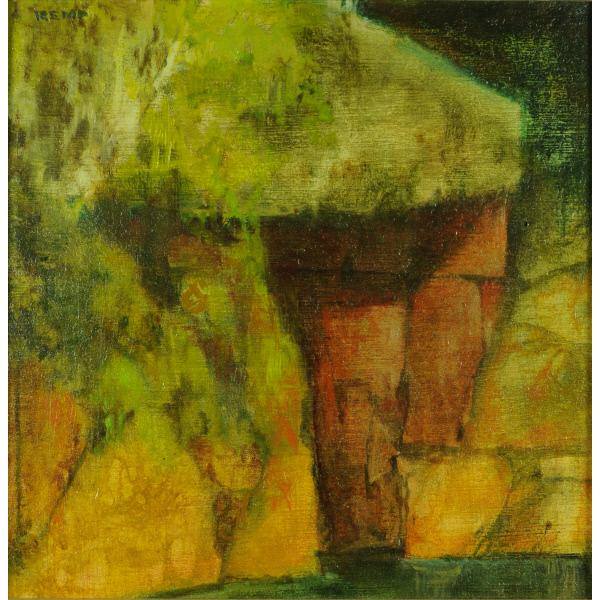On Losing the Vernacular
Penn Kemp
A dapper Japanese gentleman, Mr. S., in a beautifully tailored suit, has hired me for the evening to babysit his four children as they sleep. His place is in the rain forest on a commune on the inappropriately named Sunshine Coast. Using blue tiles that cleverly fit together according to his own design to ward off rain, he has built the house himself for the specific needs of his family. Now his wife is gone and inside, the two older children are asleep on the couch. The somewhat slovenly babysitter hands me the two infants before she slopes off into the night. I tuck the babies both into the one bed, at the foot of the older kids, with enough room that they would not be kicked by restlessly kicking feet. When Mr. S. returns home, I show him the happily sleeping children. He shows me how the blue tiles neatly slip into one another, exactly suiting the lay of the land.
The sweet little house is built to slip under the crest of a hill. Its style is vernacular, following the Japanese tradition as it fits into the West Coast. Opposite is a golf course where the richer commune members play. To extend the course, they overrule the Japanese man with an injunction to tear down his place just to create another couple of holes. Mr. S. will have to move: where will he go? Where will he find another place so well suited? I worry because it seems so unfair, but he takes the outcome in stride, moving on without attachment. Still in his bespoke grey suit, he steps out of the forest into the town square with his only belongings a pack on his back. I follow with the children in tow, into adventure.
